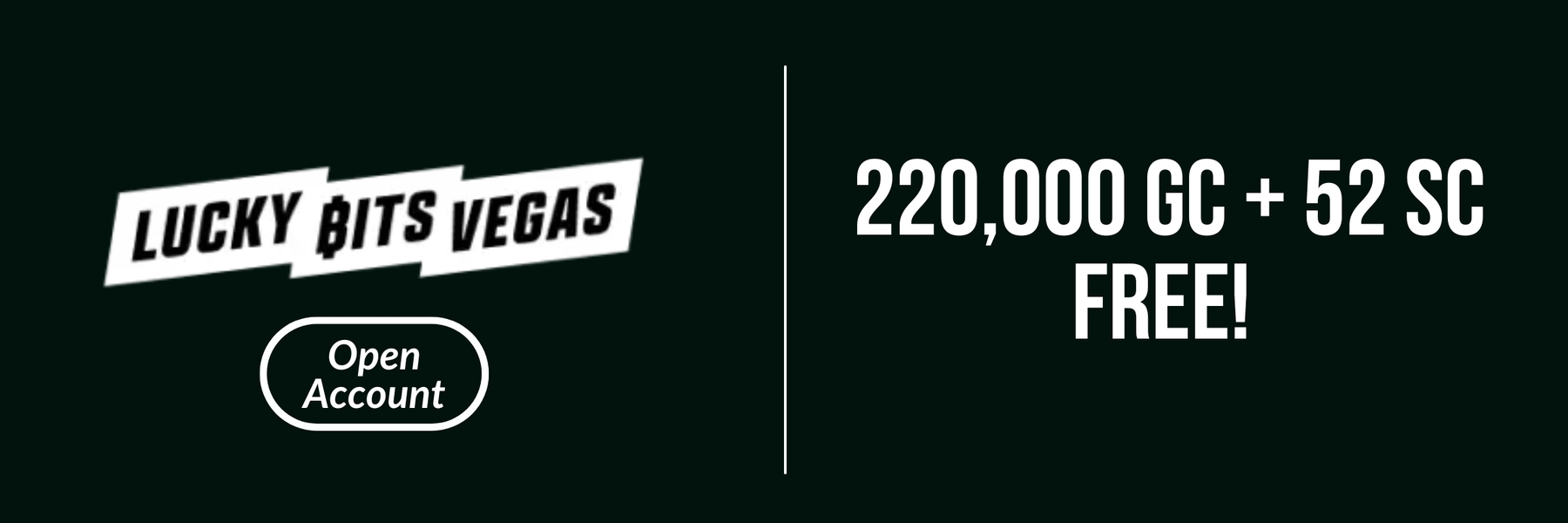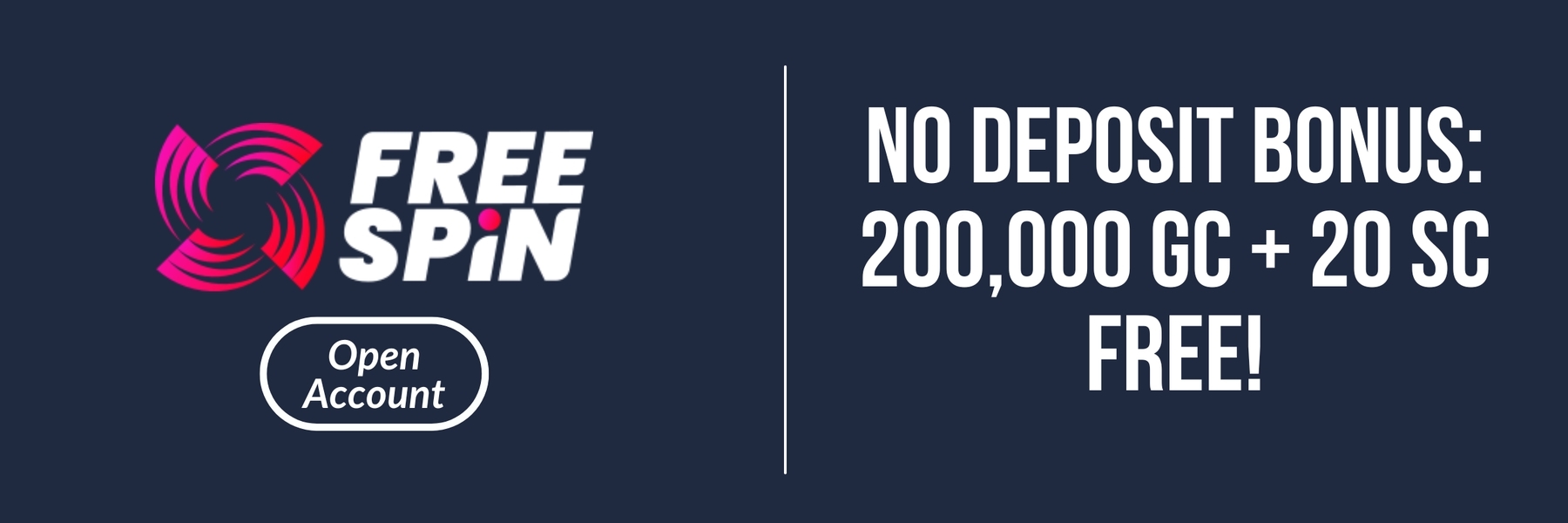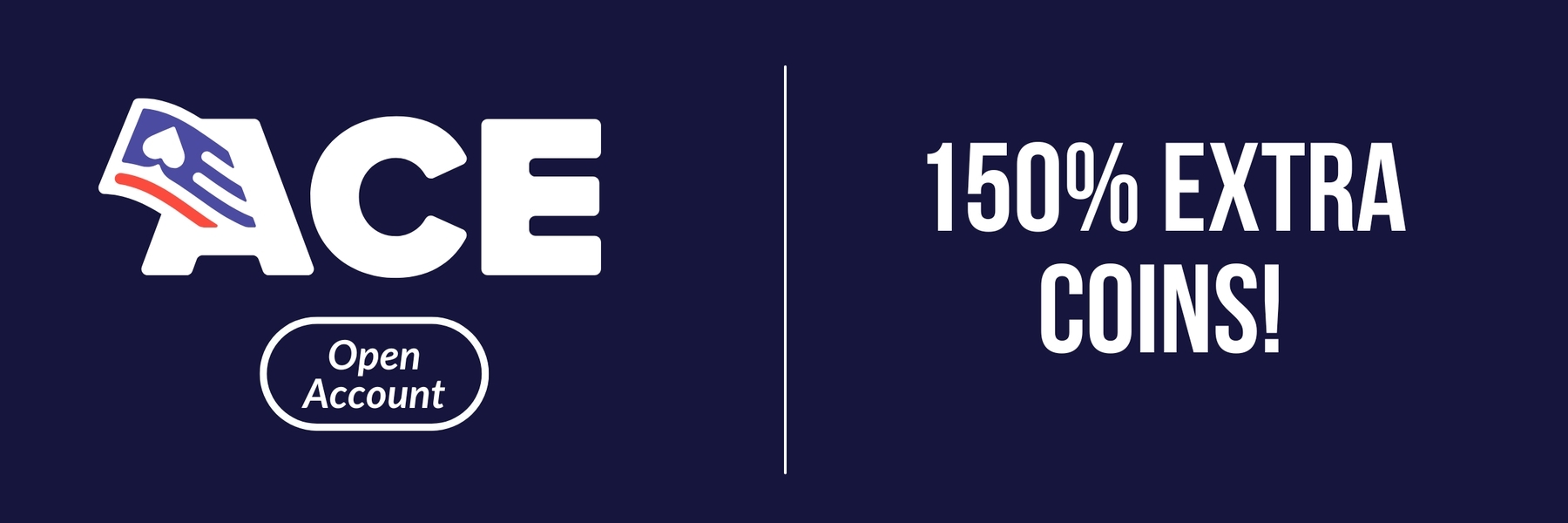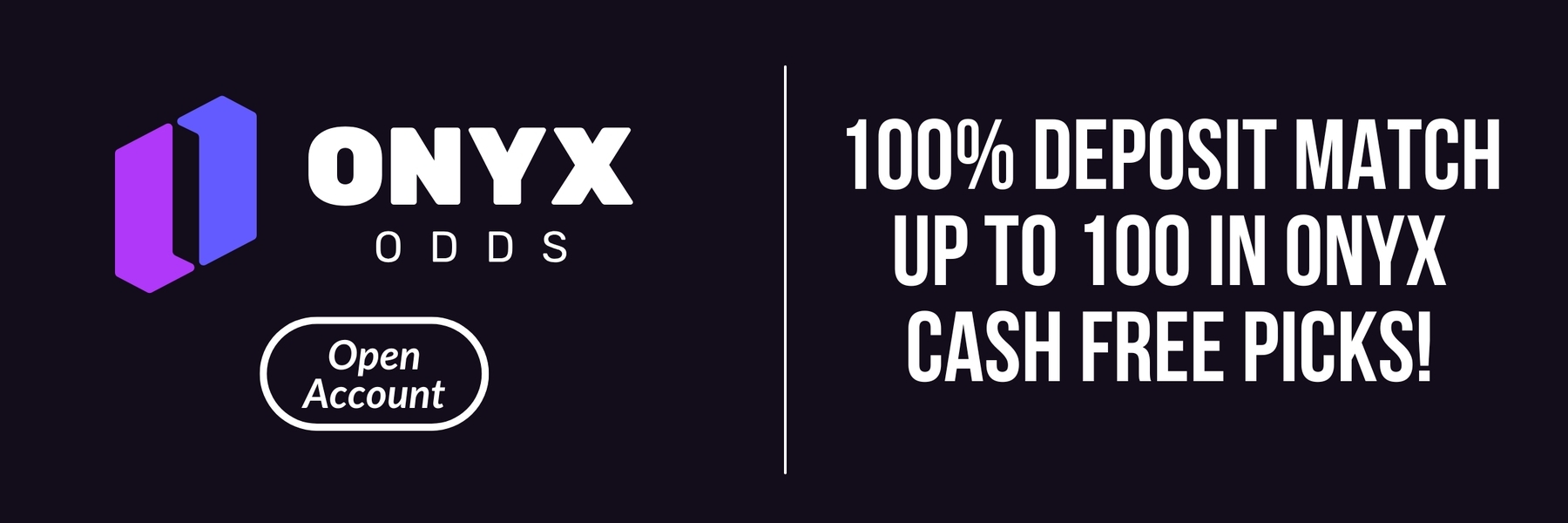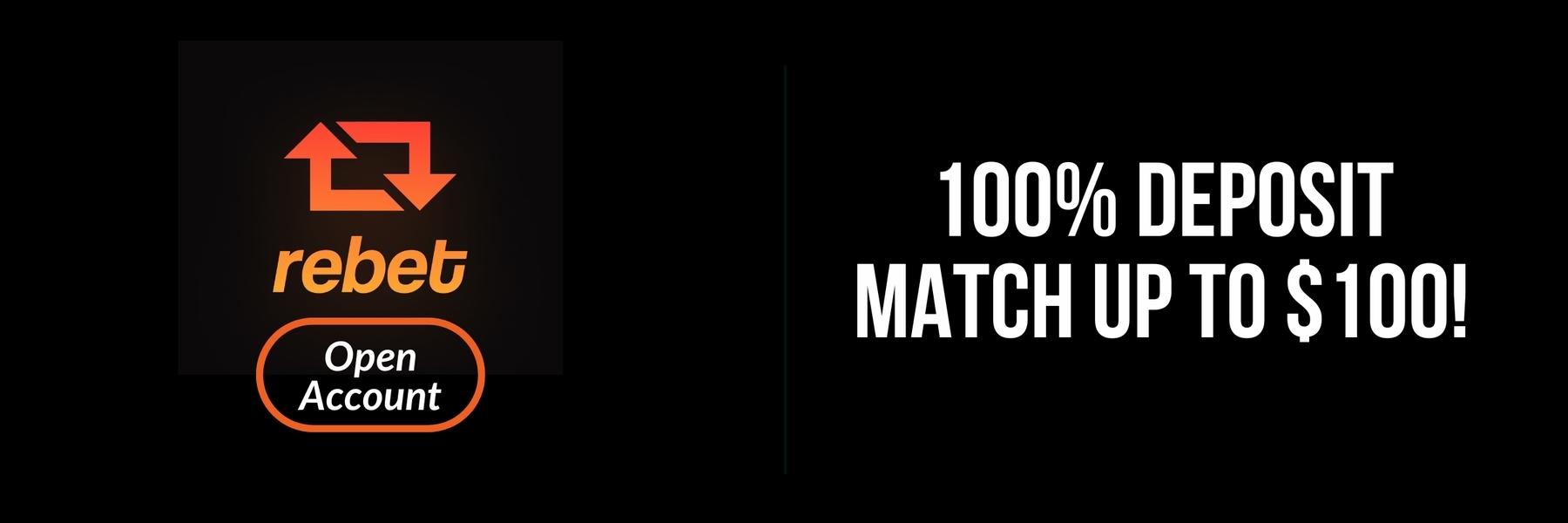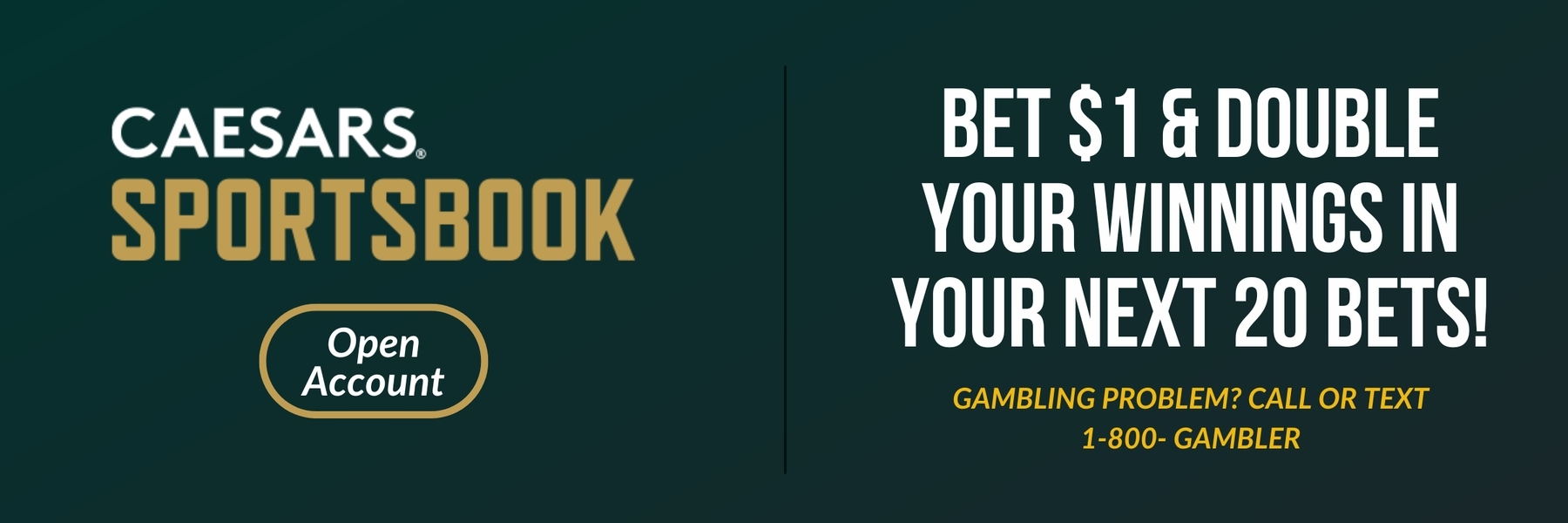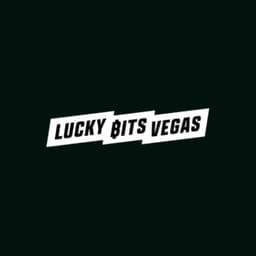00:06 - Rob Pizzola (Co-host)
welcome to episode number 48 of the circles off podcast and video on youtube. I'm rob isola, joined by johnny from bet stamp. Our thanks very good.
00:19 - Johnny Capo (Co-host)
If you are listening to this, then march madness is underway. Yes, release this podcast tomorrow. We're recording on wednesday, the day before the unbelievable event that is the march madness tournament. Ripe for betting, he got four back-to-back to back-to-back days of incredible betting. You know it halves off after the friday, saturday, but boy, is this the best time of the year I agree, it's one of my favorites, for sure.
00:42 - Rob Pizzola (Co-host)
Just um, you know, games getting started right before noon going you get that dinner break like that very brief dinner break uh into the night games definitely one of the best times to be a better and we're going to welcome in a college basketball better. He is a totals originator for college basketball. He's an aspiring pro better, an nba steam chaser as well. You can follow him on twitter at telemicus model and you can follow him on bet stamp at telemicus model as well. He is killing it on the bet stamp platform right now. Just heading to the marketplace, we have him listed as the first featured better in the marketplace. A track record of over 750 bets now, with 9.1% ROI, 2.7% CLV. Telemachus model. Taylor, thank you for joining us on Circles Off.
01:32 - Telemachus (Guest)
Hey guys, it's awesome to be here. Thanks a lot.
01:35 - Rob Pizzola (Co-host)
No problem at all. You're a very interesting personality. For me, this is the first time I've met you or seen your face in person, and I think for a lot of people out there you've gained a following now, in the Twitter community at least, and also on the BetStamp app. You almost have 400 followers in a very short period of time, which is actually quite big as well, just for the viewers out there and the listeners. Just give us a little bit of a personal background on who you are and how you got involved in the betting space.
02:02 - Telemachus (Guest)
Yeah, sure. So I grew up in a small town in Northern Michigan. My family was really into sports, watched a lot, played a lot. The opposite was true for gambling. We had a problem gambler in our extended family and so from a very young age for me, gambling was made out to be bad and I, you know, being the good kid that I was, I just accepted that and I've kind of lived that way most of my life. I went to college, got a software engineering degree from the University of Michigan, went and worked at Microsoft for 11 years, left Microsoft about three years ago to start my own small software company, which is what I do now.
02:40
In that time got married, had some kids and didn't even think about gambling at all. You know I'd play in an occasional poker game or you know a March Madness pool for sure, but you know, no real gambling. And then the pandemic hit. So I stayed in close contact with some friends for college and because of the pandemic we couldn't do anything like, we couldn't get together, we couldn't hang out. One of them suggested that we throw some money into a sports book and gamble on college football together. So this was in the fall of 2020. And like that sounds like a great idea, right? So we, we gambled like degenerates for the first three months of the college football season. You know, we're talking a few hundred bucks here, not much at all, lost about half of our bankroll and had a blast doing it.
03:30
And then I discovered gambling Twitter and I'm like, wait a second. People just give out picks for free on here. This is, you know, this is awesome. And started tailing a capper. Her name is Pam Maldonado and she got really hot right at that time. And you know, we made our money back in the last month of college football season and I was like, holy shit, like we just figured out gambling like this is awesome. So we're like what's up next? College basketball is up next. She suggested that we follow Ian McMillan. So I looked him up. He'd had two years of a winning record, um. And so we start following him and you know that was probably in January of 2021 and his January of 2021 was just complete garbage. Just, you know. No, it doesn't say anything about him, just bad variants. Like I didn't understand it at the time.
04:26
And, um, I lost a bunch of money again, a few hundred bucks, um. And so I'm like this can't be this hard, right, like I'm going to build a model. Like me knowing absolutely nothing about what I'm doing, I'm going to go build a model. And so I built a really crappy college basketball model, which was my first attempt here, and that was ready about mid February of last college basketball season.
04:48
I started betting it and, you know, looking back, like I had no idea what I was doing, got lucky, like probably finished up 10 units or so for the season and was convinced that I had to figure it out again. Right, like I've got the simple model I'm going to win at college basketball. All I need to do now is build a bankroll, right? So I'm like, how can I do that?
05:09
There are, you know, I live in a legal estate that has legalized betting. There's a lot of promos running all the time. I'm like, all right, if I can take my bankroll from 2,500 bucks to, let's say, 10 grand, I can be ready for next college basketball season and like make some real money off this model I built. So I started churning promos, just doing really basic stuff, and it was while doing that that I stumbled on to my first like really profitable angle and from there, like the light bulb actually went on, I realized you can actually make money doing this, and so that was 10 months ago, started off with $2,500 bankroll. As of this morning, I just crossed the 250K mark. So, like since I got started, I've been hooked right.
05:58 - Johnny Capo (Co-host)
So 250K total bankroll.
06:01 - Telemachus (Guest)
Yeah, that's what I hit this morning wow, congratulations.
06:04 - Johnny Capo (Co-host)
That's awesome over such a short period of time from taylor and pamela maldonado up to that I know right yeah no offense to pam locks.
06:12 - Rob Pizzola (Co-host)
Yeah, I mean, it's just um, there's so much to unpack there. The story is very fascinating. Uh, I want to pin you know. Start with one one thing. I think you use the word trappy if, in terms of the or maybe it was crappy, I couldn't even-. Crappy, crappy, crappy. Yeah, okay, crappy. What's a trappy model? That's what I was going to get into, but crappy model. Fine, let's start there. So when you start building out a model, this is one of the most common questions that we get. We do Q&A episodes. Obviously, level is probably the most common question I've gotten over the course of the past three or four years. I want to build a model. Where do I start? Now? You, I've identified that you built a crappy one at first. Can you walk us through what the the quote unquote crappy model was and then how you evolved on from there?
06:57 - Telemachus (Guest)
Yeah, sure, so I, when I started with that, I knew there was a lot that I didn't know, right, and so I. The first thing I started doing was looking for ways to learn, and I didn't find a lot like there. You can't just Google how to build a model and find valuable resources. So what I started doing is I started by coming up with a list of podcasts that I, you know, had found valuable. So I'm like, all right, I'm going to listen to every episode of this, this podcast, every episode of about the process, all the evergreen episodes of the deep dive pod, and then just anything else that caught my eye. I built up a list of about, you know, 300 hours worth of podcasts I wanted to listen to that. I was going to hopefully glean some things from um, and I like podcasts because I can. They're parallelizable, right. I can do them while I'm like cleaning up after the kids or you know things like that, right? But I wasn't going to do that before I started. I'm also someone who has to be hands-on, and so you know I have a very limited stats background. I have a very strong software engineering background, so the way I started was to build a robust backtesting engine, right. So I went and pulled down a bunch of data for college basketball lines and game finishes and I was like, all right, I'm going to make it so that I can simulate all the games between 2016 and 2020 and find out how I would have done had I been betting whatever strategy like kind of popped in my mind that day. Right, I focused, so the thing that that was actually a really good start and that's something that has stuck with me today.
08:32
The my crappy model was based off of trends, right, so it's the simplest thing to do, right, it's like someone threw out a trend. It's like this team is, you know, has covered the total in their last seven games. So we're betting the over here tonight. And I at least understood that probably wasn't a safe thing to do, but I was like, okay, is there? Are there trends out there that can be valuable? You know that aren't. You know, true of the last seven games that you know you can say, over the last 500 games, if two teams had come in covering the total and eight of their last 10 games, like you know, and they could they would go over or under, you know, 57% of the time. Like those were the kind of trends that I was trying to find. So I actually built like a little data mining engine to go and you know, I gave it a bunch of parameters and said find me the trends that make the most sense, that that that would have been the most profitable over the last four years, and found a bunch of those and that took a lot of time.
09:32
So over this time I'm listening to all these podcasts, I'm starting to learn that, hey, this may not be the best approach here, but I'm kind of pot committed and I remember distinctly one day where I'd run a simulation in it and I would simulate 2016 to 2019 to find the trend and then I'd say, okay, how did this do in 2020? Right? So, like, I didn't want to poison my, my, my, my testing with my samples, and so it found me some outrageous you know trend that it hit at 57% of games over a 600 game sample size. And again we're talking about like, very simple, like trends here. Like the two teams had gone over a bunch and we saw line movement in one direction, um, and the idea was okay, the market has adjusted, bethy, under Right, and so, um, and so I looked at, I ran it on the 2020 data and I'm like, okay, like how did this thing do?
10:27
And it hit like 46%, right, it hit just at like just a terrible rate. And so I'm staring at that, saying, like you know, I had learned a little bit of stats. At that point, I'd said this thing had a 99% confidence level that this was going to continue going right, that this wasn't just randomness. And then I got absolutely crushed on it, right In theory, and at that point I'm like this is not the way to go, right, like if I'm going to do this for real, I have to produce a number. I have to be able to say, like this game is lined at 140. I make it 136. It's because of that we're going to bet the under, not because of some random set of trends.
11:11 - Rob Pizzola (Co-host)
I love the backtesting part of it because in your situation, you proved how extremely valuable that kind of stuff was as well. A lot of people forego that and probably would have built out a model, identified something at a very high confidence rate and just been willing to back it with their own money and probably learned a lesson the hard way rather than figuring out before actually betting hard earned money. So I think there's a lesson to be gained from that. It is really interesting, though, just kind of the evolution of that. And starting with trends, I think a lot of people typically do start there. My personal belief is a lot of the content that's out there now is trend-based, so it's very easy to get into that space and uncover that, especially people with larger followings on social. You, coming into gambling Twitter, would have noticed that a lot of people are handicapping via trends as well, so that's pretty interesting.
11:58
Now, in terms of, let's say, after the backtesting framework, as you continue to build out the model a little bit more, you obviously have a software engineering background, which is extremely helpful. You know, for those that don't have a software engineering background, as long as you're okay in Excel, there's still things you can do. But how did you gain the, let's say, the statistical knowledge, how to build out whatever types of models you were, whether that's a linear regression model, monte Carlo simulations, anything like that? Was that Googling stuff? Was that reading books? Was that just from the actual podcast you were listening to itself? Where were you actually getting this information from?
12:35 - Telemachus (Guest)
Yeah. So there was, I'd say, a little bit in the podcasts and I'm going to be completely honest that I still don't have a lot of statistical knowledge that I'm confident in. So my approach has been very stats light. Now I still do use some very basic linear regressions here and there. Matt Bulkhalter, you know plus EV analytics, has been on this podcast before Yep and he wrote a blog series, a blog post series, on Bayesian modeling, which you know I read that.
13:09
I think it's a five part series. I felt like I really understood the first three parts. The fourth part I'm like okay, this is getting heavy. And the fifth part I'm just like I give up, like I tried to read that fifth part, you know, six or seven times and just stood like zero chance. So if you were to look at my model today, there are there's very little stats in it. You know I've learned how to use Solver and Excel and I did that through a basic tutorial online and, you know, saw its value in some of the articles that Matt had put out. But the way that I've approached things, I haven't needed stats to give me an advantage. Yet I know that's not going to be true long-term. I'm actually taking the Bayesian sports betting class that Matt and the guys at analyticsbet have put out, and I think that's going to be incredibly beneficial and I plan on incorporating a lot of that during the off season.
14:09 - Rob Pizzola (Co-host)
I think you're pretty much a target market for that. Actually, aspiring pro already has something, wants to take that next step. So yeah, I think you probably will get value out of that. Not knowing exactly what's in that, but Matt we talked to. We know Matt personally outside of this podcast as well. He's just a super sharp guy when it comes to numbers and statistical modeling. Very interesting so far. Hopefully, a lot of people are gleaning some insight about the modeling point of view and understanding that you don't need to know everything. There are limitations that you will have and you can overcome those over time as long as you put in the hard work. Overcome those over time as long as you put in the hard work. I'm very interested in knowing if you've come across any major pain points since you've started modeling, either things you couldn't get over, potentially issues with data that you've been working with, some personal experiences that I guess you would have had to overcome a major pain point.
15:01 - Telemachus (Guest)
Oh, absolutely. There's been a number of them. So the model that I have is based off of play-by-play data, and anyone who's ever looked at play-by-play data knows that that will quickly become the bane of your existence, right? So I probably have 600 hours into my model at this point. I'd say over half of that has been dealing with play-by-play data parsing, dealing with problems in play-by-play data. It's just, if you can ever build a model that doesn't require play-by-play data, I would highly recommend that, but I'd say that's kind of a well known.
15:36
One Model is also simulation based.
15:40
So, if I'm know, handicap a game, what I'll do is I will simulate a game by simulating every possession of that game, right, so from start to end, and I'll run that, you know, tens of thousands of times and it'll give me a distribution of potential final scores, and then I will use that to judge the value of the line, right?
16:01
So that's what I do, and then I will use that to judge the value of the line Right, so that's what I do. I'm one problem that I deal with right now is that if I want to do that for every game between 2016 and 2020, it's going to take like 12 hours, right, and I can run it on the same data set twice and it's not going to give me a the exact same output, which drives me crazy. Right Cause, when I want to go and run a test to say like, okay, am I handling free throws better now, or am I projecting free throws better now, like I'm going to get a result that is a little bit different than, you know, my previous run, and it's like, okay, did I improve it, or is this just like some variance in my model and that drives me crazy.
16:41 - Rob Pizzola (Co-host)
Right, and that's a problem I think that we all have, because obviously you could up the number of simulations, but then you're upping the amount of time that's going to take to run it, which is frankly a pain in the ass For sure.
16:51 - Johnny Capo (Co-host)
So one thing I wanted to really touch on was you know, outside of modeling, we can go back to modeling for sure in the answers, but you know what is the kind of day-to-day betting look like for you. If you don't mind sharing in on this podcast, you know we don't want to share anything you're not comfortable with. So, within what you're comfortable with sharing, you know what sports are you betting, um, you know what books how much. If you wanted to share that, obviously it's such quite a come up to get to where you are. So we're happy to share that advice with people who are starting as well.
17:19 - Telemachus (Guest)
Sure, yeah. So, um, I'll talk to that and I'll also add the disclaimer that you know I made a lot of my money betting baseball, so it's not part of my daily process right now, but you know we can get into that right now. For me, yeah, I'm betting a lot of college basketball overnights, so I let's start at night. Actually, I put the kids to bed around eight. I run my model. I'm a volume better. So, like I think Rob mentioned, I'm at just about 800 plays. That model has only been active for the last two months and so I've, you know, built that up pretty quickly. So I'll bet somewhere between five and 50 games. I'm in a legalized state, so I try to. You know, I will use bet stamp to find the best line out there and whether that's, you know, at Caesars here in the States or some legal sports book or at somewhere like BetOnline or LoVig or somewhere offshore, I will bet wherever I can find the best line that I can get as much down as I need to Right. So I'm, you know, college basketball openers. Some have pretty low limits, but with all of the legalized sports books coming in, I can actually get a decent amount down Right. I haven't had for me. I haven't had trouble getting, you know, you know 1200, 1500 of that wake up at five or six Eastern time to try to to get down on any new lines that have come out. You know, ideally before the kids wake up.
18:53
My model is completely automated, so whatever it spits out I bet that's. That's where I'm at right now, so it doesn't take a ton of time Take care of the kids, hand them off to the nanny, head into work. When I get into work, it's you know. Luckily I work a software job, so I'll spend the first hours maybe tweaking my model, running an experiment, something like that, and then, when 9 am rolls around, I'm steam chasing in the NBA and that usually lasts from about 9 to noon, and I found an edge, which I'm not going to talk about heavily here. That by itself isn't all that valuable, but when you combine it with steam chasing it takes a small plus EV bet and makes it a pretty large plus EV bet, and there's some places that don't move that fast, and so I chased steam in the NBA for the morning when I first started doing that.
19:46
It was pretty time consuming and I'm actually supposed to be working a day job at that point. So I quickly found that I couldn't stare at a screen for three hours. I went and automated as much of that as I possibly could. So my setup now is I'm working, doing my day job stuff, and I have a little bot sitting there watching for line moves that I've deemed valuable for me, and then when it finds one it plays a little chime. I switched desktops really quickly, place a bet or two or four, and then switch back and then get back to work, and then you know, the rest of the day is real work. I will, when I get bored, pull up that stamp and see my CLV for the bets that I have in place. So I actually sweat my CLV numbers throughout the day, which is quite enjoyable, um, and then you know, get home, hang out with the kids, put them to bed and then start all over again.
20:42 - Johnny Capo (Co-host)
Interesting. Uh, are you using an odd screen or some sort of odds board to steam chase? That's the only thing I was going to ask there.
20:48 - Telemachus (Guest)
I am Well. I was originally so like if. If it had existed back when I first started, I would have been using the unabated, the unabated odd screen because it's the best one out there. I was using wager talk at the time and that's kind of painful to follow. Now I've I'm not actually watching the screen. I have something watching the screen for me. I have a little bot watching the screen for me.
21:11 - Rob Pizzola (Co-host)
I appreciate the amount of automation because I I've gone through something personal, obviously a lot of my day-to-days, but with Betstamp now as well and I'm a pro better. So you kind of got to figure out ways to make sure that you're you don't have to be available to bet at every hour of the day, um, and the automation component is great. Um, I have so many things that I can ask you but, um, this has been a very interesting conversation for me. You mentioned sweating your CLV. That's interesting for me, um, because I feel like you partly create some of your own CLV in the market as well, so I can again, the amount of people that follow you and subscribe to alerts for you for Betstamp is one thing.
21:54
Once you post your plays in Betstamp tends to move the market pretty quickly as well. So there's a lot of people that are tailing them. In terms of overnight. Now, in a efficient market, you would guess that you know if you're on the wrong side of things, the numbers would get played back. But I've noticed particularly in this space, especially college basketball totals. You know Ken Barkley from you Better you Bet is another one who gives out overnights and the market is going to move in that direction and stay in that direction so much. So I'm curious how much you actually think your own CLV matters, because I personally do think that you're creating some of it. And, on top of it, what are potentially some secondary metrics that you might look at, whether that's error testing that you do, whether it's just your ROI like, how important is the CLV to you right now?
22:43 - Telemachus (Guest)
That's. That's a great question and actually, you know, I I'm really interested in your perspective there because prior to what you said, I would have said that I'm not having that big of an impact on the market, and that's because I just don't have, I'm not able to see, you know, like how how many people are actually following these. I can see how many followers I have, but I don't know how many people are actually following these. I can see how many followers I have, but I don't know how many people are actually reacting to it. So, you know, what I see from my perspective is that there are a few books who will move off my action if I give them a limit bet. That's like your bet on lions and your low bigs. But I kind of think they move off of pretty much anyone who gives them a limit bet early enough, right, and that's not quite true, but yeah, it partially true.
23:27
But yeah, okay, yeah, sure. So I don't feel like I haven't. You know I didn't have an immediate impact as I've gone on this you know this tiny two month journey I feel like when I first started I was, you know, probably averaging 2.4, 2.5% CLV on a good week, and I'm at kind of 2.9 now, and so I could see some of that being artificial. I do think that the market will get knocked back into place, given my level of betting right now. I'm not pushing back on the market at all, I'm not. I'm not hitting anything higher than you know opening limits, but now that you've said that I need to, I need to think about that more. You know, when I look at my metrics or I'm not doing proper Kelly staking right now, and so ROI can actually encourage me to do the wrong things right. If you're flat staking or close to flat staking, it's going to say you should only bet your largest edges right, and so I know that I can make money off my 54 and 55% edges, but they're going to lower my ROI and I'm okay with that.
24:38
So for me, for this two-month stint, I have been looking mostly at CLV to tell me how I've been doing, and I've actually gotten crushed a little bit this week on it related to NIT and CPI games. There's this prevailing trend that they tend to go over. I've shown a ton of value on unders in them and so I've bet all those unders and the market has largely disagreed with me. So you know, I still think my CLV has some value, but in that case I actually think that I know why the market's moving against me and I'm okay with that. So that's a really long-winded way of saying I use CLV. I wish I had better metrics. I obviously pay attention to ROI and how many units I'm turning around and ultimately what I rely on the most is my back testing and looking at my performance metrics there to know how I'm doing.
25:37 - Rob Pizzola (Co-host)
Right. So I think one of the things you said was actually a very smart answer, which was prior to me even gaining a larger following. I was still getting very good CLV and tracking that. So you're probably right and that's a meaningful thing to look at In terms of the error metrics in your backtesting. Now, when you run a backtest, for example, are you looking for profitability against closing lines? Are you looking for your log loss or your RMSE specific error metrics? How would you evaluate a good back test?
26:09 - Telemachus (Guest)
Yeah. So you know, ignoring the problem that I talked about, where it's hard to get a truly consistent back test I, I look at my performance against openers because that's how I'm betting Right. I look at my performance against closers because I want to know when I can, you know, move my progression up, like when I want to get more money down. I, you know, look at, I've moved my staking system for my back testing to be Kelly staking. So I'm pretty sure if you're doing proper Kelly staking, that you know whether you're looking at units gained or ROI, it should be roughly the same. And so you know, I pay some attention to those numbers. But I pay more attention to my you know, my log loss on on my projecting the total, or, like my you know, my average absolute median error when I project the total.
27:02
I think the one thing I'm doing maybe a little bit different or I haven't heard people talk about this is because of the nature of my model, because I'm actually simulating a game, possession by possession. I can actually look at all those stats for each individual metric as well. So, like am I? Like two point makes, three point makes, you know, offensive fouls, offensive rebounds, and so you know, if I am trying to, you know, change something in my model that's going to, that's going to make me more accurate at predicting offensive rebounds, then I'll look heavily at that metric more than anything else, right, because you know, these types of models are complex systems, and so one thing I I try to be super careful, careful of, is that if my goal is to improve offensive rebounds, and I find that I improve that number, but my overall ROI actually decreases with that change In my mind, what that means is is I had two issues, you know, that were compensating for each other, right, and by correcting the offensive rebound issue, it has now put something else out of whack.
28:06
It's made, you know, whatever compensating error, um, it's exposed that more Right. And so it's really hard to to fight that urge to say I'm going to reject this change because my, my, my model's done worse. But I know that. You know, if you, if you only look at gains, you're going to have a really hard time ironing out issues where you're on, you have two different errors that are kind of offsetting each other, right.
28:30 - Rob Pizzola (Co-host)
Makes a lot of sense. But building out a model that way is very smart as well, in the sense that I mean, should we ever see college basketball props at scale or something like that, you'd be in a prime position to be able to capitalize that on as well, on top of the actual major markets. So you know it's, there's no one right or wrong way to build something out in this. I think you've learned a lot of valuable lessons along the way, but from the sounds of things, I'm pretty impressed with the progress. For someone who started modeling at the beginning of COVID it, it's a pretty great success story, I would say.
29:07 - Telemachus (Guest)
So, yeah, I I feel overwhelmingly lucky, like I wasn't even planning on betting the model this year. I kind of started this model at the in December of of last year and and the only reason why I decided to start betting it it's because I started to see, you know, my back tests were coming through positive. I'm like, hey, it doesn't hurt. But yeah, I don't think this is a common story. I realized that I've stumbled upon something good here. I've caught some positive variants.
29:32 - Johnny Capo (Co-host)
What's your performance versus close? How is that compared to performance versus open?
29:38 - Telemachus (Guest)
Yeah, so you know it scales based off of my percentage. So I'm lucky enough that my model, like the bigger edge that I show generally, the bigger payoff I have and my edge over openers right now is, you know, on a large sample of games or on the games that I want to bet, which is a pretty large number, it's about 55% Um for those. You know, that's across all games that I want to bet across at close right now. For me it's about 53% Um and so that's that's not enough for me to be betting, you know, confidently, because 53% it just isn't enough.
30:15 - Johnny Capo (Co-host)
When you say 53%, you mean 53% win percentage on minus one.
30:19 - Telemachus (Guest)
So just above, break even on minus one 10.
30:22 - Rob Pizzola (Co-host)
Got it, yeah, okay, I okay I mean that speaks to the efficiency of the market, though, as well. Right, I know, I just I'm not familiar, like I don't.
30:28 - Johnny Capo (Co-host)
Yeah, I got it I don't know many people that track it that way, but it it's the same thing, it's just a different calculation. So, no, that's that's very, uh, very interesting. One other thing was so the actual style of betting for someone who's starting is massive, because forget about the actual model you have, and this is I will start this so we can clip this. But when you're starting out betting, the easiest and best thing you can do, as we've mentioned, is have multiple sports books. The reason is the bonuses, and when you get these bonuses together, this is how you can build your bankroll from $500 up to 3,500, which is the easiest 7X you'll ever do to your bankroll. It'll never get easier than that. So you mentioned when you started. That's what you did. Do you mind talking a little bit about that?
31:16 - Telemachus (Guest)
I think it's really interesting, sure so, yeah, and I did just that I found out what is the best way to make most of your, to make the most of your first deposit. Right and honestly, that is something you'll find more for offshore sports books, right, like crypto bonuses, things like that. I haven't found a ton of deposit matches for legal US sports books. You know they focus heavily on. You know you get a $2,000 risk-free bet or a $5,000 risk-free bet, and those are something I actually struggled with a little bit early on, right? So I had a you know $2,500 bankroll to start with and Caesars wants to give me a $5,000 risk-free bet. I'm like, ah no, I know that's not truly risk-free, right, like the way to maximize that is to put 5k down on you know an underdog or some long odds line, and I can't take that risk, right?
32:09 - Johnny Capo (Co-host)
So we also won't be able to bet all five grand and comes in bunches, so it'll be like it's not actually $5,000 of one free bet, like, for example, that that particular promo would be five risk-free bets up to $1,000.
32:26 - Telemachus (Guest)
Right. So it varies by sports book. So that's how it was. When I eventually got to the point where I could do that with Caesars Draft Kings was offering a targeted one for the Superbowl, where I literally got a $5,000 risk-free bet back, which was, which I then turned around and lost again and lost 5k pretty quickly, which was, but that was recently, so no big deal. But so you know, I got into arbing those free bets, right. So, like arbing has a lot of downsides, right, you're leaving money on the table when you are. But if you have a $2,500 bankroll, like I had and some, and you managed to get a $250 risk-free bet and I can guarantee that I can turn that into $200 of real cash, I did that and that's a big win for me. I'm not going to take the risk at that point in time.
33:16 - Johnny Capo (Co-host)
So you are being between different sports books.
33:18 - Telemachus (Guest)
Yeah. So if you get a $200 risk-free bet, you can find a plus 500 line somewhere. You don't even need it to be a true arbitrage right. You can have a plus 500 bet on one book, minus 450 on another book. You put your free bet on the long odds and you're basically converting it. So at those numbers that's probably like an 84, 85% conversion rate and, and you know, looking back on it, it wasn't the way to maximize EV, but it's. It's certainly helped me bootstrap my bankroll.
33:50 - Johnny Capo (Co-host)
Yeah Well, it doesn't maximize EV, but what it does is reduce the variance and give you a secured amount of money in your bankroll, which, if you do have an edge and you're trying to compound and grow money and I know you mentioned you you're working another job, so you got kids and I presume that all that's you know taken care of by your day job and it's not something to worry about. But for people who are starting out, fresh out of school zero dollars to their name they do need to build up that guaranteed money. So it's not necessarily the biggest EV in terms of number of dollars that you're going to get, but it is the best EV for people who are starting out, because you need to get that money in your, in your account before you can start making more, absolutely All right.
34:28 - Rob Pizzola (Co-host)
I want to talk a little bit about having your accounts limited, because this is something that also comes up quite regularly. Again, we do a lot of Q and A's. A lot of people are always looking for advice on how do I stay under the radar? What can I possibly do to make this edge last longer? I know that, because we've talked off air about this, that you did some testing, particularly with your accounts and getting limited. Is there some generic advice or even more detailed advice that you can offer to those out there who are looking to fly under the radar and potentially keep those accounts lasting longer?
35:01 - Telemachus (Guest)
Sure.
35:01
So I'll get into a little bit about what we did and what was successful for us and hopefully that's useful to others. You know when, when we first started getting limited, the first thing I did was listen to your, your Q and A's and other people's Q and A's and and did the basic things right. So seating with with square bets definitely helps your account at least a little bit in the beginning. We found betting parlays helps. Again, even if you're just, if you're betting your high edge things in parlays, that helped us. Um, there was a you know when, when we started hitting this edge hard, like I was able to go for about two weeks before I got limited. You know the each kind of person we brought in before that was, you know the next person was 10 days and eight days and seven days was you know the next person was 10 days and eight days and seven days. And there was one day where, um, we brought someone in and they're doing their betting and two hours into betting they get limited, like not two hours into like pay their you know being paid out. It was was literally like all the the bets that we had placed on games, Like none of those games had started yet. So nothing graded, nothing graded. So like there's no CLV numbers here, there's nothing right Like there's no, if you haven't won any money, they're just like nope, this account's limited.
36:12
And so that was eye-opening for me. So when I think about people prior to that, when I thought about getting limited, it's you got caught up in some. That's one way to get limited, but there is another way. It's the trader sitting on the other end who notices that you're doing something funny and flags you for either to get a review right away or an immediate limiting. And so I look back on those, the previous people that we had. We had four days, five days like those guys probably weren't sweeps either. It's we just happened to trigger whoever was trading that day, and so this opened up a a big set of possibilities for us, a big set of things to try, and what we did, and what I'd recommend that other people do, is you run experiments, right.
37:04
So how can we avoid that initial banning? Like? That was very important for us. If I could get four or five days on an account, I could make quite a bit of money was very important for us. If I could get four or five days on an account, I could make quite a bit of money.
37:13
And so we started you know changing bet sizes. We started limiting the amount of money we put on a single game. We started changing the you know the types of bets we placed. Sometimes we do only parlays, sometimes we would only bet certain angles or certain ways, I should say. And we noticed some interesting things, right. So think about the trader sitting in the seat. One of the more interesting things that we found is that whoever was sitting in that seat on Mondays, wednesdays and Thursdays at this particular book was a little bit of a nit and really didn't like it. When we got a decent amount of money down, the guy who worked on Tuesdays and Fridays didn't care all that much, right? So now we learned that we could hammer them on Tuesdays and Fridays and we'd have to be a little more careful on Mondays and Wednesdays and Thursdays, but we were able to move back to using things like that, able to move back to only getting caught up in those giant sweeps that happen, that really get anyone.
38:13
And there were some other things that gave us an advantage that came out of that process right. So our process was, you know, today we're going to bet in a certain way. We're going to only bet at a certain time. We're going to, you know, use cash outs or not use cash outs, we're going to. You know. One of the things you had to do in my example was you had to you know, time your bets, and so we would. We would time them different ways. We'd only play them if we could get them at a certain time. And you know, through keeping notes, keeping records, you know, testing hypotheses on what's going to get us limited, like we were able to get to a point where we could avoid that initial trader limit, which allowed us to stay alive much longer.
38:56 - Rob Pizzola (Co-host)
This is for everyone.
38:56
Listening or watching this is just like a commitment to the craft right.
38:58
It's like wanting your edge to survive as long as possible and knowing you know, or trying to figure out how to go about that.
39:05
Um, one thing that really really triggers myself and Johnny uh, maybe I'm speaking on his behalf, but definitely triggers me is people who think that sports betting is just as easy as being able to, like, you know, I figured something out, I can bet it, I can bet this forever and that's it. And they don't recognize the amount of effort that it takes on a daily basis to keep your edge, to have that edge sustaining over time, but also to like, prolong it in some cases. Um, and I really appreciate your breakdown of that, because it's just a great example of putting in a little bit of extra effort to prolong that type of edge and keep it going, and there's not a lot of people out there that are willing to put in that type of effort. So, um, this is just a props to you as another, better to be able to go down that path and say, like this is, I want to make more money and this is a way that I can test that out and do it Like it's great.
40:01 - Johnny Capo (Co-host)
Yeah, and the commitment to the craft is huge because, as you mentioned, like it's not easy to go through that, like what you did. Like, just from hearing it from you, it's not easy to basically be like, oh, I gotta test out all these. When's this guy trading? When is it? When are they accepting a bet, noting it, detailing it, things like that. It's like you know it really is. Like it's cool.
40:19
It's cool you've done this and not only um have had success with it, but like, kind of like, even on a part-time basis you know what I mean like it's it's more of a hobby that you're trying to turn into an aspiring as you mentioned, aspiring pro. Better, so congrats. This has been like great and pretty eye-opening for a lot of people, I'm sure, because, as Rob mentioned, it's not easy to do, but if you can achieve it, there is money to be made and outside of the money, there's a lot of like success to be had. Like I'm sure it felt great. You know, discover these edges or hit a big thing that comes in into the account and you're like, wow, I just brought my bankroll from 25,000 up to 100,000. Like that 4X is awesome, the next 4X is even better and you keep growing and growing. So you know, love to hear it, just one before we get into our final question.
41:07 - Rob Pizzola (Co-host)
You've gone from, in a very short span, from being pure recreational better tailing other people's plays on Twitter to what I would call a semi-professional. At this point, what's do you think? What do you think is the best piece of advice you could give to someone trying to go from that level, from recreational, to semi-pro?
41:25 - Telemachus (Guest)
Sure. So I think that the thing I would tell them is is grind and be curious, like, like, don't try to hit a home run right away. Like, grind promos, like, build your bankroll one step at a time. You know, for me I discovered the angle that ended up, you know, really helping me, really making me a bunch of money, while you know grinding out, arbing free bets, um and and the other. You know, the second part of that which is important is the be curious part. Right, for me it was. I stumbled onto something where I looked at it and said that seems wrong. I don't understand why the biggest mistake that you can make and I think a lot of people make is they assume I don't understand that I must be the one who's wrong. So when you encounter that, do the work to prove to yourself that you were wrong, right, and now you've learned something, or you'll find that the book is wrong and that's where you make a lot of money, and that happens often.
42:28 - Rob Pizzola (Co-host)
Yes, I think one of the biggest common flaws or misconceptions in the space is that people give the books too much credit a lot of times. And there are these advantages you can take advantage of.
42:39 - Johnny Capo (Co-host)
What are you working on for this upcoming season? Anything interesting to share in terms of not only role modeling but other edges you're exploring anything like that.
42:46 - Telemachus (Guest)
For me. So this college basketball model has done really well. I think I've benefited from some positive variants, but I'm definitely on to something. My current plan is to spend the entire offseason working only on that. I've got a list of 100 things that I think could impact that model and my goal is to come back next college basketball season and be ready to bet closes and be ready to push back on the market. That's my goal for the off season and I think I'm going to spend most of my time doing that. I will also try to find some small angle, probably in baseball, probably steam chasing, probably combine steam chasing with something else so I can continue to, you know, build my bankroll there and and be aware of changes, right. So, like I, based on the advice I just gave, like I need to keep grinding too Right, so that hopefully I'll stumble onto something else that that um will be profitable.
43:43 - Johnny Capo (Co-host)
Yeah, I'll tell you straight up Um, in my experience as well, like the, the more you, the more you really look, the more you'll find. And it's not about, like you said, it's not about hitting every single one Like you're going to explore. Like you said, it's not about hitting every single one like you're gonna explore, at least in my, in my experience, I've for 25 things. Nothing came of any of them and probably lost money on all of those things, and then the 26 one makes up for all that plus more, and it ends up being worth it. So, um, it's, it's fun, but, as you mentioned, is it grind, like it is what it is all right, our closing question.
44:11 - Rob Pizzola (Co-host)
It's what we ask to all our guests. I know you listened to every episode. I will just say it out there for those who haven't listened before. But if you could go back to back five years and talk to a previous version of yourself, what piece of advice would you give to your old self?
44:26 - Telemachus (Guest)
Okay. So I've listened to every answer to this question so far and I, with some of them, more than mine, but I'm going to give you two of mine that I think haven't been said yet. So one can apply to betting, but it can apply to everything else as well. So my wife and I have started doing something recently that's been really beneficial, that I wish I would have known about a while back. So we're all busy people, right? One of the most common things that I think everyone says is I don't have time for that. Right, like I should go to the gym today, but I don't have time for that. And we got some advice and I don't think this was novel advice from whoever gave it to us. But to basically remove that statement from the things that you say and instead replace it with that's not a priority for me, right, cause it really makes you challenge. Like, do you have time for that? Should you be making time for that? So, like I'm not going to go to the gym today because it's not a priority for me. It's like is that correct? Like, no, my, my health and fitness actually is a priority. Like I need to change something else. Right, and like this you know, this has helped me immensely when it comes to like doing things with my kids, but also like investing in my betting models. Like you know, I need to you know, rebuild some major portion of my back testing engine. It's like no, that is a priority, like I don't have time for it, but like I need to do that because it's going to pay off a lot in the long run. So that's one of them.
45:50
The other one gets back into my, the crappy basketball model that I built and it's it's something that really crystallized for me at the end of that, which is when you're factoring in how big of an edge you have or how worthwhile an edge is, you need to consider how you will know when you've lost that edge. You need to consider how you will know when you've lost that edge, right? So if you look at two different ways to bet college basketball, let's say one is trend-based, right? One says that in the NIT the overs have hit at 55% for the last 600 games Bet the overs and then you know you have some model that says this line is 140 and I make the game 145. So I'm betting the over like, let's say, you know you've done those for a little while you've made some money and all of a sudden the market adjusts.
46:42
Right, what are you going to see? Well, in the first case, you're not going to see anything. You're just betting the overs. And because variance exists, you're going to bet that over for quite a while before you realize you've completely lost your edge. Now, it's still possible to get into a situation like that when you have a number that you produce, but it's much rarer. You know, ideally, what you'd see is, instead of the game being lined 135, like it's now lined 139. And you're like okay, I don't have an edge, I'm not going to bet that, I don't, I don't have an edge, I'm not going to bet that. And so you know, the advice I would give to myself is is on, you know, factor in what it's going to take to stop betting something and make sure you're not just going to blow through all the profits you've made, realizing that you don't have edge here anymore.
47:25 - Rob Pizzola (Co-host)
Right, Great pieces of advice altogether. The first one really hits home with me because I say that maybe more regularly than anyone else. I have no time for that. I don't have time. I wish I had more time. So that's actually a piece of advice that I will take in my personal life.
47:40
You can follow him on Twitter at Telemachus Model. You can follow him on Betstamp, head to the marketplace. I would highly suggest you click the follow button. I'm not telling you necessarily to tail anyone's plays. You can do your own due diligence on bet stamp, but he's worked up a pretty good record over 800 or so college basketball totals. It's pretty impressive with great closing line value. You do with that what you want to do with it. But, um, you heard a story here from recreational better to semi-pro and then maybe I mean you're an aspiring pro. You might get there sooner rather than later. Based off the conversation we've had, I can't honestly cannot believe the amount of progress you've made and the understanding you have of the space over just a couple of years. So credit to you. It was a pleasure talking to you and we wish you all the best in the future.
48:26 - Telemachus (Guest)
Thanks guys. Good luck to you as well. This has been awesome. I really appreciate it.

